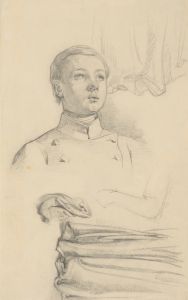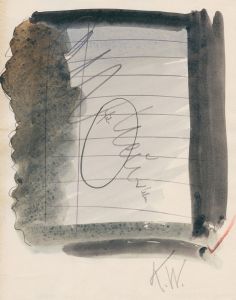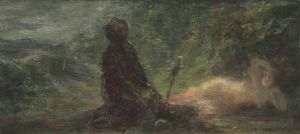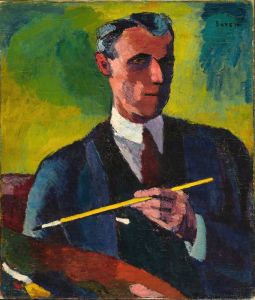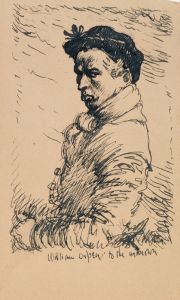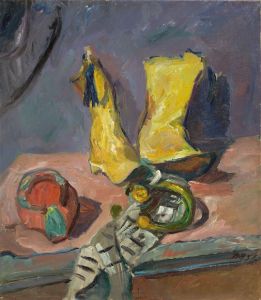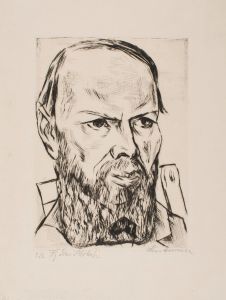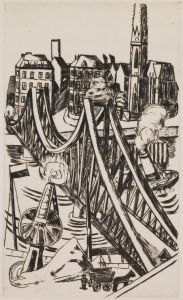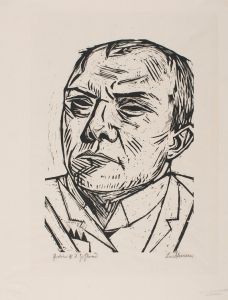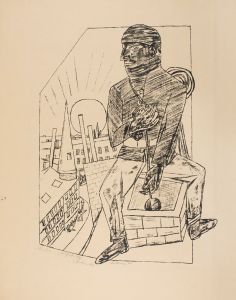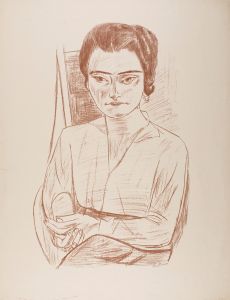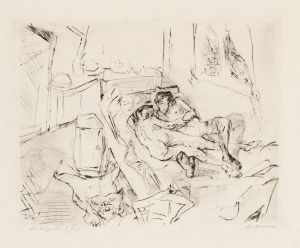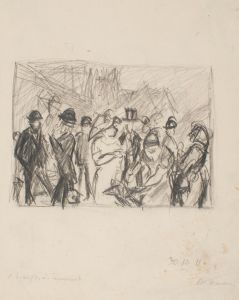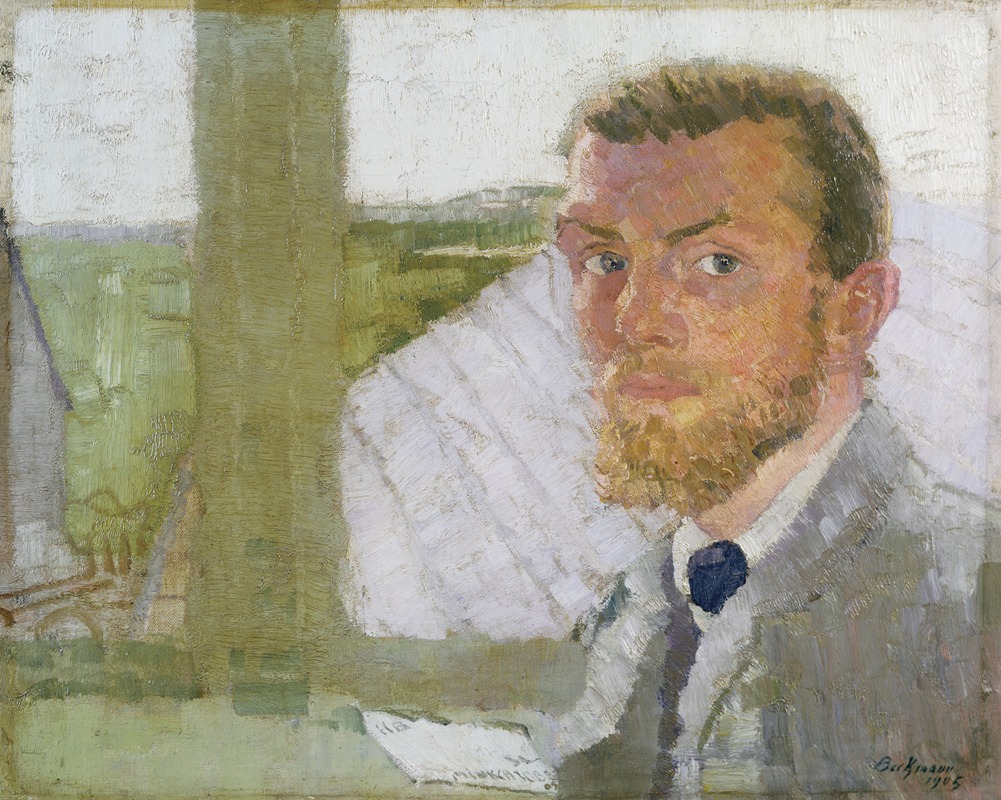
Self-Portrait
A hand-painted replica of Max Beckmann’s masterpiece Self-Portrait, meticulously crafted by professional artists to capture the true essence of the original. Each piece is created with museum-quality canvas and rare mineral pigments, carefully painted by experienced artists with delicate brushstrokes and rich, layered colors to perfectly recreate the texture of the original artwork. Unlike machine-printed reproductions, this hand-painted version brings the painting to life, infused with the artist’s emotions and skill in every stroke. Whether for personal collection or home decoration, it instantly elevates the artistic atmosphere of any space.
Max Beckmann's "Self-Portrait" is a significant work by the German painter, known for his contributions to the Expressionist movement and his distinctive style that evolved throughout his career. Beckmann, born in 1884 in Leipzig, Germany, was a prominent figure in the art world, particularly noted for his self-portraits, which provide insight into his personal and artistic journey.
The "Self-Portrait" by Max Beckmann, like many of his self-depictions, reflects his introspective nature and the turbulent times he lived through. Beckmann produced numerous self-portraits over his lifetime, each capturing different aspects of his personality and the socio-political environment. His self-portraits are characterized by their intense emotional depth and often somber tones, which are hallmarks of his style.
Beckmann's work is often associated with the New Objectivity (Neue Sachlichkeit) movement, which emerged in Germany in the 1920s as a reaction against the emotional intensity of Expressionism. However, Beckmann's style is unique and cannot be easily categorized. His self-portraits often feature bold lines, dramatic contrasts, and a sense of psychological complexity. These elements are evident in his "Self-Portrait," where he uses a direct gaze and strong composition to engage the viewer.
Throughout his career, Beckmann's art was deeply influenced by the historical events of his time, including World War I and the rise of the Nazi regime. His experiences during these periods are often reflected in his work, which frequently explores themes of suffering, alienation, and the human condition. Beckmann's self-portraits, in particular, serve as a personal commentary on his life and the broader societal changes occurring around him.
Beckmann's "Self-Portrait" is not only a reflection of his personal identity but also an exploration of the role of the artist in society. His self-portraits often depict him in various roles, from the observer to the participant, highlighting his contemplation of the artist's place in the world. This introspection is a recurring theme in his work, as he grapples with the complexities of his identity and the external forces shaping his life.
In addition to their psychological depth, Beckmann's self-portraits are notable for their technical mastery. He was skilled in various mediums, including painting, drawing, and printmaking, and his self-portraits often showcase his ability to manipulate form and color to convey emotion and meaning. His use of bold, expressive lines and a rich color palette are key features of his style, contributing to the powerful impact of his self-portraits.
Max Beckmann's "Self-Portrait" is a testament to his enduring legacy as an artist who navigated the challenges of his time with a unique and compelling vision. His self-portraits continue to be studied and admired for their artistic and historical significance, offering a window into the mind of one of the 20th century's most influential artists. Through his self-portraits, Beckmann not only documented his own life but also provided a broader commentary on the human experience, making his work timeless and universally resonant.





